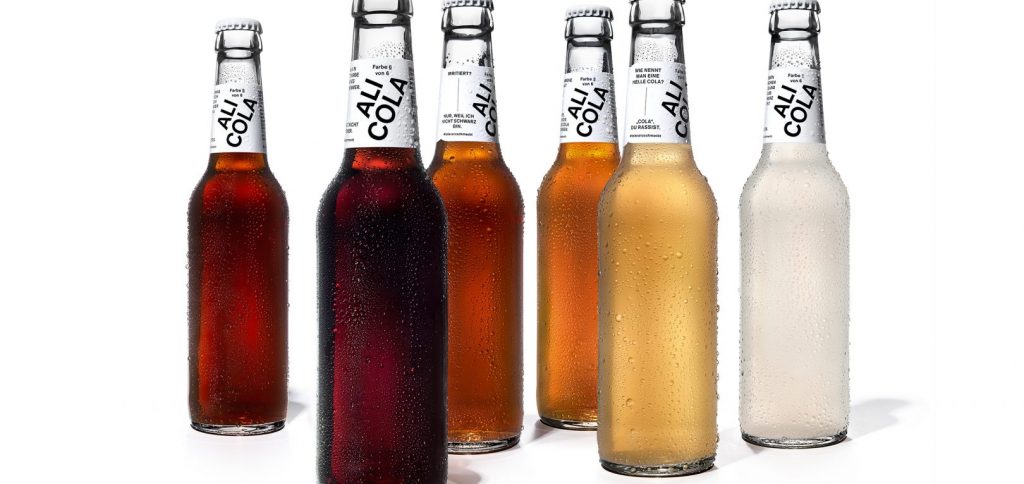Themed week Flavor variety: Niche Success on the Agenda for Soft Drinks Too

In Germany, consumption of soft drinks is currently on a slight downward trend. Globally, however, the trend is somewhat different: Although per capita consumption of carbonated soft drinks is evidently decreasing in Europe, North and Latin America and Australasia, it is (according to GlobalData) on a slight upward trend in Asia and even experiencing a major upturn in the Middle East and Africa.
According to Germany’s “Wirtschaftsvereinigung Alkoholfreie Getränke e. V.” (WAFG, a German soft drink trade association), per capita consumption of soft drinks was 118.2 liters for Germans in 2016. In 2015, the equivalent figure was 118.8 liters – a slight decrease, in other words. This development becomes more interesting when scrutinized in further detail, revealing that individual segment performance went in opposite directions. Cola drinks and cola mixes, for example, increased by 6.2 percent, whereas sales of carbonated fruit drinks dropped by a full 10.4 percent. Whereas traditional drink recipes often experience drops in sales, innovative soft drinks are increasingly achieving niche success.
General Trends for Premium Carbonated Fruit Drinks
Drinks manufacturers are recognizing consumer requirements and launching innovative concepts tailored to these on the market. These cater for current trends above all, with a big focus on “sustainability” and “regionality”, among others, at the moment.
According to Petra Ossendorf, a drinks expert at Nielsen, these “premium” fruit drinks, which got an average price of one euro or more per liter, are recording major growth on the German market. “These [drinks] have increased their share of the German carbonated fruit drink market to just under 11 percent,” she tells us.
Quality, Regionality and Luxury
Well-established drinks manufacturers are finding success with premium carbonated fruit drinks just as much as new companies. Teinacher, for example, has launched a range of citrus lemon, rhubarb mirabelle and mandarin-orange “luxury drinks products”. Thomas Schmid, marketing manager at Teinacher: “Making these luxury products was an obvious idea for us, as Teinacher as a brand is all about the good things in life. The drinks themselves are high-quality, i.e. do not contain preservatives or artificial colors or sweeteners. They also have a high fruit juice content, namely ten percent. They are our way of catering for an exacting target group that has a high purchasing power and attaches importance to high-quality local products.
Limoment, a start-up company based in East Westphalia-Lippe, is pursuing a similar strategy itself: Janosch Kriesten, his brother Bastian and some childhood friends had the idea of making their own “lemonade”. Limoment now has its very own “lemonade-style soft drink”, which is available in both “apple mint” and “apple rose” flavors, both of which avoid the use of sugar and sweeteners. This company also focuses on regional production, bottling the drinks at a family-run brewery.
A New Take on Soft Drinks
A flavor experience from northern Germany: In their new soft drink, Hamburg start-up leev has combined Altländer dessert apples with Cascade aroma hops. The latter are used, among other things, in various types of craft beer. Taiberg, meanwhile, a company known mainly for its caffeinated soft drink, is literally “going back to the drawing board.” To create its product, the company uses carrot, pomegranate, grapefruit juice and neutral-tasting Siberian ginseng, as well as natural colorants and sweeteners.
Selo, an unsweetened, caffeinated soft drink is a combination of sustainability and caffeine kick. What makes it special is that coffee berries, rather than coffee beans, are the fruit used. The former make up the majority of the coffee harvest, but have not tended to be used much in the past. To make this soft drink, the coffee berries are brewed in warm spring water, which in turn releases aromas and the natural caffeine. Organic lemon juice is then added and the drink carbonated to create the finished selo drink. The drink is now also available in a grape flavor.
Tolerance via Soft Drinks
One brand of soft drink, different flavors – that is often how it works with drinks manufacturers. Ali-Cola, however, has shown that things can be done differently, using a concept that has one identical flavor, but differently colored variations of the cola, at its core. The story behind the brand is unique as well! Managing Director Aydin Umutlu was so angered by what was written by Thilo Sarrazin in 2012 that he felt he really had to do something about it. His idea was to create a cola drink with tolerance as its message. Having developed the idea, Ali-Cola now sells six different shades of cola, which aim to represent the different skin colors that exist in the world. “They’re all the same; they’re only different from the outside – like people,” the founder of the company tells us. “I would like to show that racism has no place anywhere.” Thanks to the success of his product, Aydin is able to support Kiron, another start-up, which gives refugees access to higher education.
More information about innovative and individual soft drink concepts from around the world will be available at drinktec, which will be held at a 150,000 m2 venue between 11 and 15 September this year, with 70,000 visitors expected to attend. This trade fair is an excellent opportunity not only to talk to people at the event’s different stands, but also to meet industry experts at the many meeting points, such as the New Beverage Concepts special area, the Innovation Flow Lounge or the drinktec Forum. Ultimately drinktec offers a wealth of opportunities waiting to be tapped, and helps visitors to stay up-to-date with what is going on in the drinks industry and learn about industry developments at an early stage.
Innovation Flow Lounge is supported by:
- Döhler
- FoodBev Media
- KHS
- Sahm GmbH
